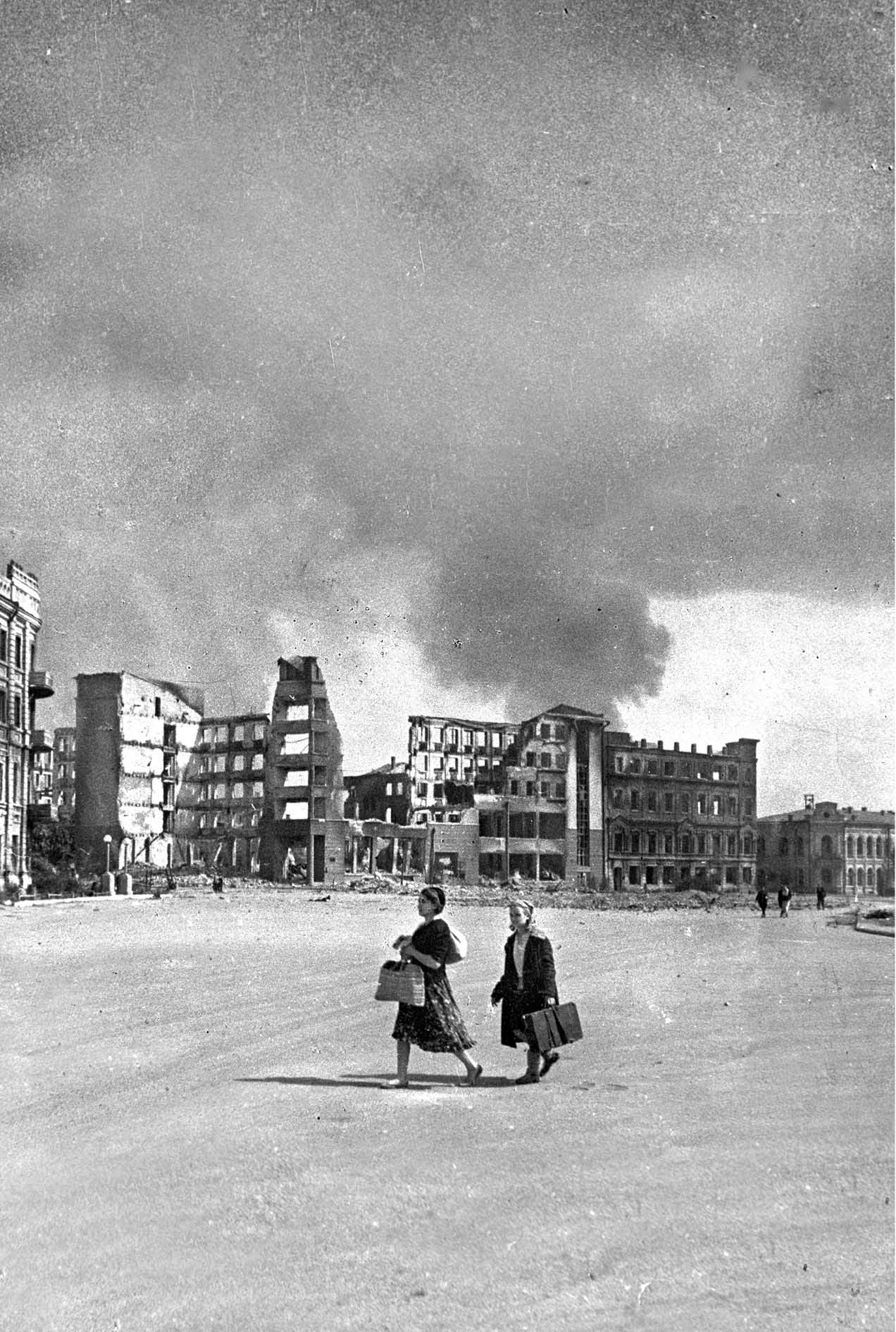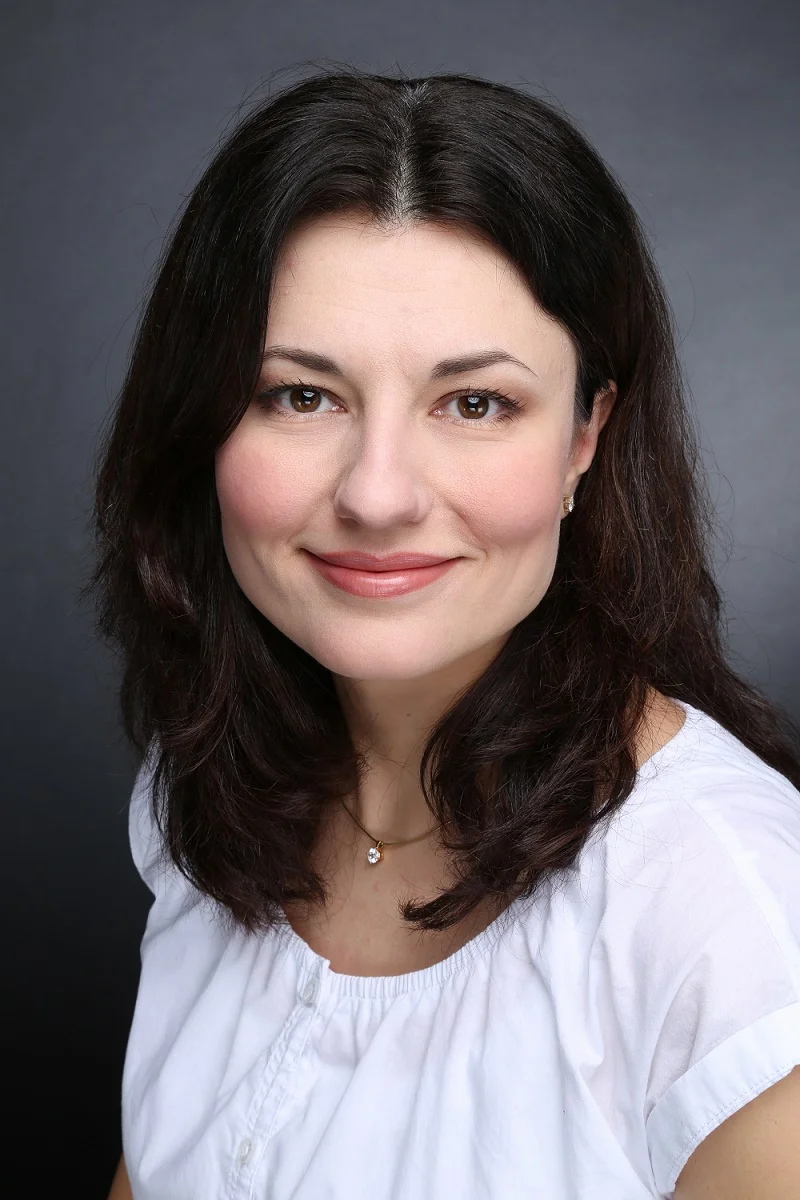Nuclear physicist Lev Strum, executed in 1936
Stalingrad during the siege.
Vasily Grossman’s 1960 novel Life and Fate has been hailed as a 20th century War and Peace. It is, however, only the second half of a dilogy, the first half of which was published in 1952. Grossman wanted to call this earlier work Stalingrad, though it was published under the title For a Just Cause. The characters in the two novels are largely the same and so is the story line; Life and Fate picks up where Stalingrad ends, in late September 1942. The first novel is at least as remarkable as Life and Fate; the chapters about the Shaposhnikov family are just as tender and witty, and the battle scenes are still more vivid and moving. The one important difference is that in the later novel Grossman writes openly and directly about questions that, in the earlier novel, he can address only in code. After its journal publication in 1952, For a Just Cause was republished with major changes in 1954 and 1956. All three editions differ greatly from the early typescripts. Comparing the different versions makes for an illuminating — and often surprising — study of the workings of Soviet censorship.
One of the most memorable chapters of Life and Fate is the last letter written from a Jewish ghetto by Viktor Shtrum’s mother — a powerful lament for East European Jewry. The words of this letter do not appear in the first novel, yet the letter’s presence makes itself powerfully felt and it is mentioned many times. We learn who carries it across the front line, who passes it on to whom, and how it eventually reaches Viktor. Grossman describes the difficulty Viktor experiences in taking it in and his inability to talk about it even to his family. The absence of the letter itself is eloquent — as if its content is too awful for anyone to take in.
Robert Chandler will talk about translating the novel. The German-Ukrainian historian Tatiana Dettmer will discuss her own very recent discovery: the existence of a real-life model for the hero of the two novels. The fictional Viktor Shtrum, a nuclear physicist, is clearly modelled on Lev Shtrum, a nuclear physicist working in Kiev in the 1920s and early 1930s. Lev Shtrum was executed in 1936, during Stalin’s purges, and deleted from the historical record. Historians of science have only rediscovered him during the last few years.
Robert and Tatiana will also talk about the links between science, literature and politics in the USSR, and why Vasily Grossman’s novel Stalingrad symbolically marks the end of the Stalin regime. A highlight of the evening will be a video-greeting from Elena Shtrum – the 96-year-old daughter of Lev Shtrum, who now, like Tatiana, lives in Cologne.
This event is organised by Pushkin Club, and all are welcome.
Tatiana Dettmer runs oral history projects with Holocaust survivors. She is now the the Managing Director of the Lev Kopelev Forum in Cologne, Germany – an independent non-governmental organisation promoting cultural ties between Germany and the countries of Eastern Europe.
Robert Chandler has translated Sappho and a selection of Apollinaire for Everyman’s Poetry. His translations from Russian include many works by Vasily Grossman and Andrey Platonov. He has also compiled three anthologies for Penguin Classics: of Russian short stories, of Russian magic tales and (together with Boris Dralyuk and Irina Mashinski) of Russian Poetry. He is a co-translator of three volumes of memoirs and stories by Teffi and the author of a short biography of Alexander Pushkin. His translation of Vasily Grossman’s Stalingrad will be published in June 2019. His translations have won prizes in both the UK and the USA and his own poems have appeared in the TLS and elsewhere. Teaching is increasingly important to him, and he runs a monthly translation workshop at Pushkin House.
Stalingrad is being published in June by Harvill Secker in London, and by NYRB Classics in the USA.




